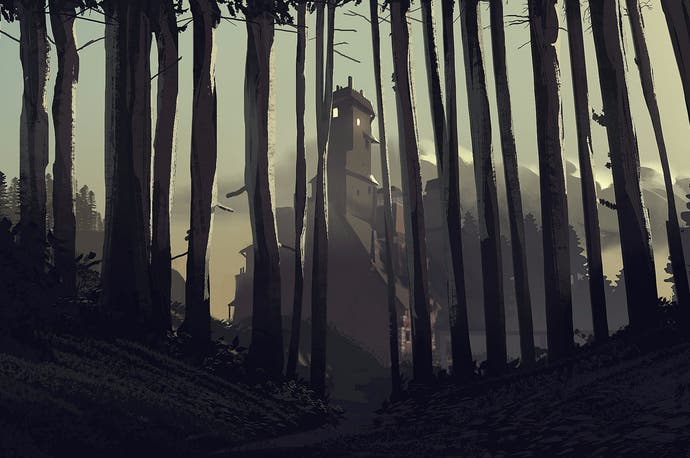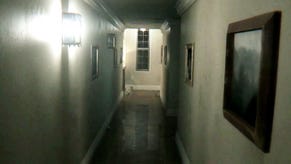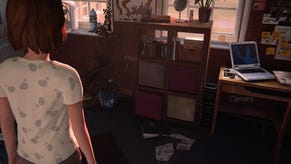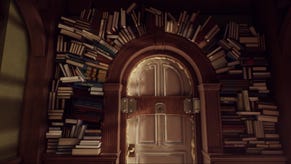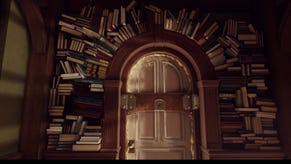What Remains of Edith Finch and the art of inevitability
Bird's eye view.
Editor's note: As you may guess, there are spoilers for What Remains of Edith Finch ahead. Read at your peril.
The scariest shape is the circle. I'm thinking about one now. Brrrrrr. Freud would probably have told you that circles are scary because they make you think of the devouring void of the vagina or something, and who am I to call him a ridiculous misogo-bore, but that is not why I am scared of circles. Specifically, I am scared of circle stories, which I'm not sure is a technical term, but makes enough sense to work with. A circle story is one where the end turns out to have been immanent in the beginning. The twist is, there was no twist: it was always going to be this way. The horror is in the inevitability.
Sometimes a circle story uses prophesy to set its trap. Oedipus and his parents, whose misfortunes are all caused by their efforts to avert the misfortunes foretold for them, occupy a circle story. Sometimes a circle story uses time travel travel: the intricately looping plot of Primer is a circle story (and director Shane Caruth clearly likes the form, because his follow-up, Upstream Color, is about the life cycle of a parasite). Often, they're about inheritance. What's scarier than the call coming from inside the house? The call is coming from inside you, and something nightmarish in your own nature is orchestrating your downfall.
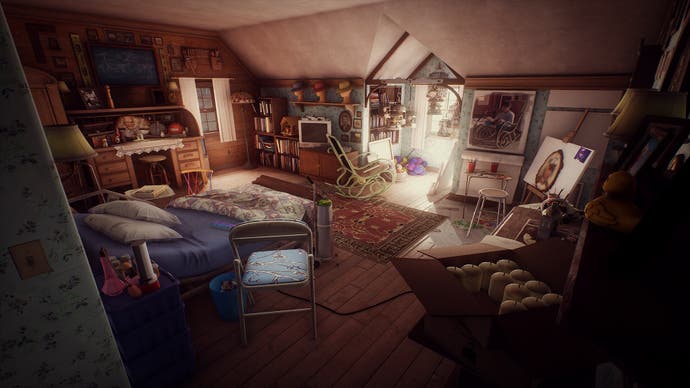
That's the horror of What Remains of Edith Finch? As Edith, your job is to investigate your family history. The cursed tribe of the Finches has died out at a most alarming rate, and Edith has returned to the family home to find out why. Is this a good idea? Even Edith doesn't seem to think so, often expressing doubts that any good can come of knowing. And yet she wants to know. We want to know too, which is why we drive her on in her exploration of the ricketty Finch house with its bizarre outcrop of extra bedrooms.
Every time a family member dies, their bedroom is kept as a memorial, so every new arrival requires an extension, with each addition meticulously designed by Edith's great-grandmother Edie to honour the occupant's personality. And since every Finch's death is a remorseless working out of their life, it's in the bedrooms that Edith finds the narratives of each baroque demise. The most strange and amazing death is that of Edith's great aunt Molly, who died aged ten. It's also a perfect circle story, a loop within the strangling loops of the Finch heredity.
Sent to bed without dinner, hungry Molly eats everything in her room. Then she sees a bird out the window and she wants to eat that too, so she leaps out - and becomes a cat. When she catches the bird she becomes an owl and hunts rabbits, then a shark hunting "fat, juicy seals." And then, when she's full up with seals, she becomes a sea monster, a slithering tentacle you control as it ravens down sailors before it smells something irresistible on the shore. So you travel to the shore and then wake up in bed, knowing the beast is hiding underneath you, knowing you're about to be devoured, knowing (as Molly writes in her testament to her hungry night) "that I'm going to be delicious."
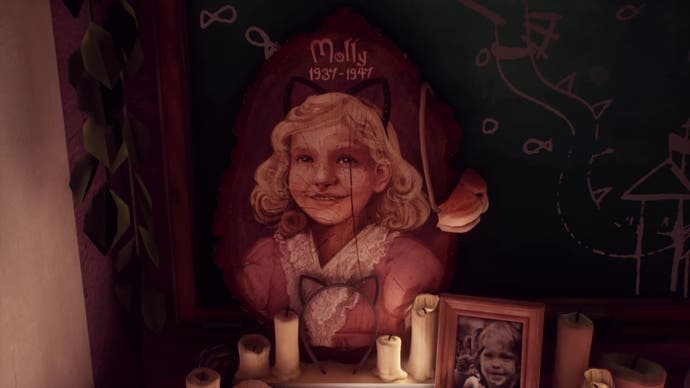
This is brilliant storytelling, of a kind that games struggled to get credit for. Fantasy novelist Ursula le Guin once sniffily declared: "there is a vast gap between even the most interactive computer game and genuine narrative." This seems to assume that interactivity means giving the player an arcless mass of options. But what's great about Edith Finch's gameplay isn't that it makes you powerful: it's that it makes you complicit. It's true that in Edith's brother Lewis's story, you can tweak the details of the regal fantasia that preoccupied him to the point of self-destruction, but this doesn't affect the outcome.
You know that none of these stories will end well, yet you drive Edith on through them because the alternative is no story. It's the same sick thrill of reading Lovecraft (and as well as Molly's monster looking like something from Lovecraft's tentacular imagination, one of the books with which the Finch house is overstuffed is a copy of the Necronomicon). Of course it's a bad idea to follow that scratching in the walls, to burrow down into your origins and learn the ruinous truth of who you are. But you do it anyway. The story compels. Only in Edith Finch, you don't just read and sympathise: you have to take the controls yourself and make it happen.
Edith remembers her mother Dawn berating Edie for the way her stories had destroyed the family. There's nothing as dangerous as narrative. But Dawn, who seals the rooms with their fatal stories inside them, is the one obstructing our interests. Edie, who drills peepholes, is our ally. Edith worries about whether she should be writing all this down, but she does it anyway, ensuring that the circle goes on. She dies giving birth, but her son comes back to read - and relive - her story. We know the loop has been completed when the game shifts to uterus-cam and we experience birth from the baby's point of view, ejected into the world through a fleshy circle. Maybe Freud did had a point about vaginas after all.
